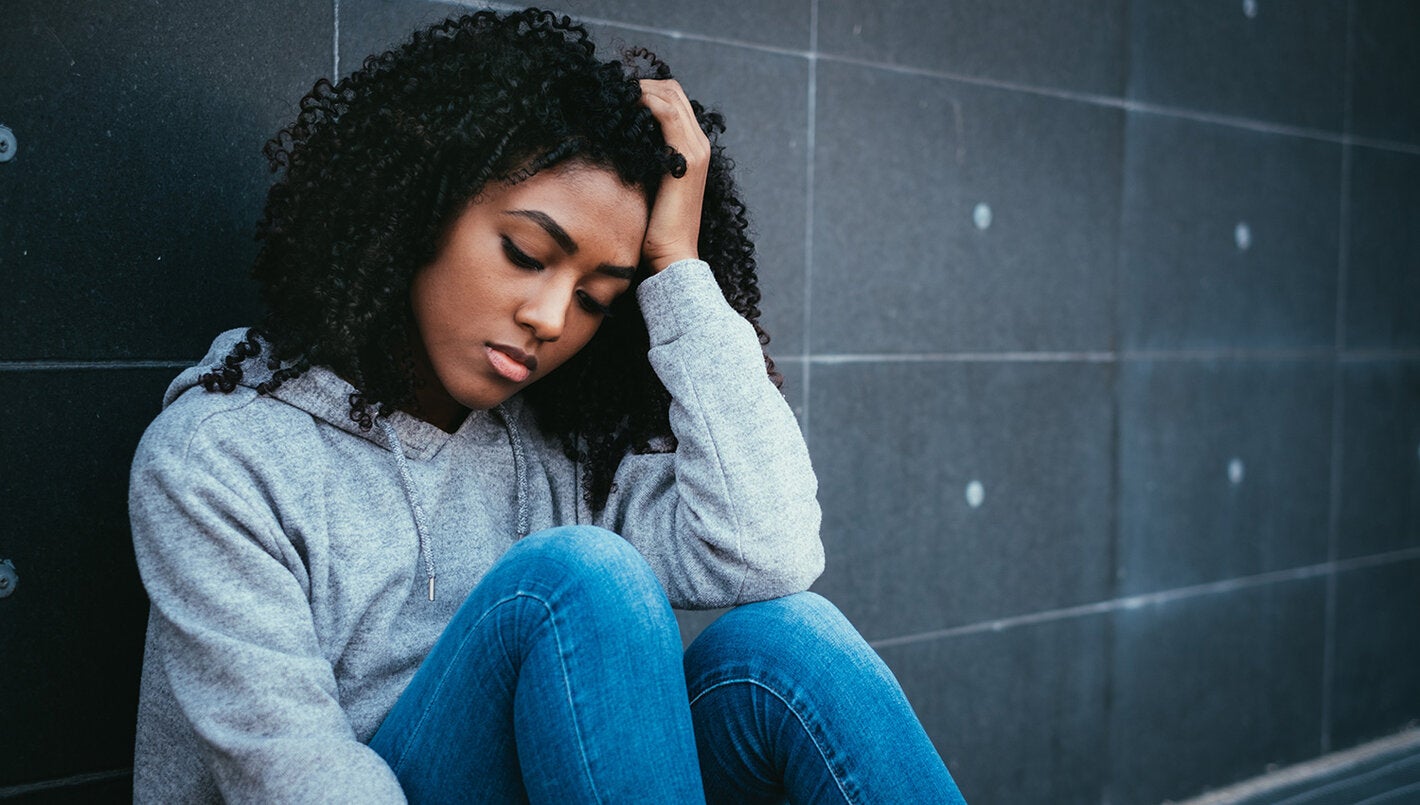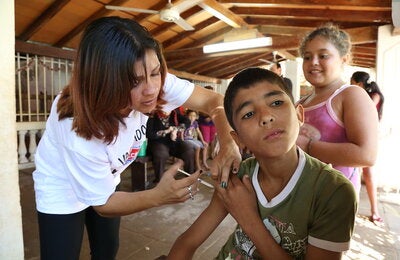
As the pandemic deepens economic and social stress, violence against women intensifies, with serious consequences for their mental health.
San José, Costa Rica, 17 July 2020 (PAHO) — Women leaders in Latin America today advocated integrating mental health into the COVID-19 pandemic response and called for a significant increase in investment in this field to avoid an increase in linked cases of mental illness.
"As the risks of violence and destabilization of mental health conditions increase, as is often the case in emergencies, we can anticipate greater needs for women and their children in psychosocial support and mental health services. Despite these obvious concerns, mental health continues to receive inadequate attention from public health," said the Director of the Pan American Health Organization (PAHO), Carissa F. Etienne, during the virtual event organized by PAHO and the Government of Costa Rica.
Dr. Etienne emphasized that before the global COVID-19 pandemic, women in the Americas were already 50% more likely than men to suffer depression disorders and were twice as likely as men to develop anxiety disorders. According to PAHO data, the average public expenditure on mental health across the region is just 2% of the total health budget, and more than 60 percent of this funding goes to psychiatric hospitals.
The Director of PAHO called for strengthening health policies, systems and services to ensure that the integral well-being of women is part of the country's response to COVID-19. In addition, she stressed that where direct in-person care from health care providers is not possible, remote services such as telemedicine and helplines should be provided as part of the care toolkit.
Along similar lines, the Vice-President of Costa Rica, Epsy Campbell, stressed that meeting the mental health needs of people, and particularly those in a vulnerable situation, should be one of the main objectives in the response and recovery of countries facing COVID-19.
"This is a responsibility that governments must assume, betting on multilateralism as an instrument to achieve a coordinated and lasting solution, but also with support from the private sector and civil society," she said.
"We must build a regional alliance to improve people's well-being while avoiding higher economic and social costs due to the advent of a new pandemic. Investing in mental health today more than ever is crucial for the socio-economic recovery of people, societies and countries," Campbell stressed.
Differentiated impact
Alejandra Mora, Executive Secretary of the Inter-American Commission of Women of the Organization of American States (OAS), explained that public health measures such as the mandatory confinement implemented by many countries before COVID-19, have generated higher levels of stress and anxiety in women, as well as an increase in social gaps.
"Women are assuming the emergence of care, paid and unpaid domestic work, and are at the forefront of the health sector, a situation that not only carries an increased risk of infection, but also has obvious impacts on their mental health," she said.
Maria Noel Vaeza, UN Women Regional Director for the Americas and the Caribbean, said women and girls are particularly affected by the pandemic and are coping with a large part of the stress at home. "The socialization of women in the context of the gender division of labor has put them in a position of self-deferment and disproportionately tending to the needs of others. As the pandemic deepens economic and social stress, violence against women is intensifying, which has serious consequences for women's mental health," she said.
The Manager and founder of the RENOVAR Mental Health Clinics of Colombia said that it is necessary to generate the conditions for the region to invest in the well-being of people. "Mental health service reform will move faster if we take advantage of the current circumstance to drive, modernize and innovate long-term service delivery," she said.



